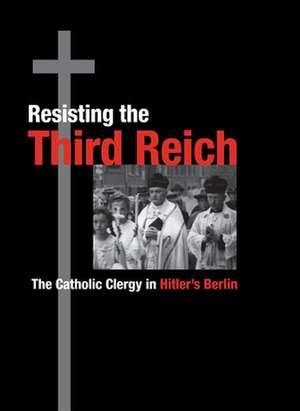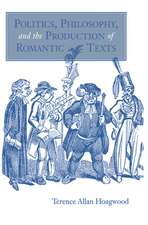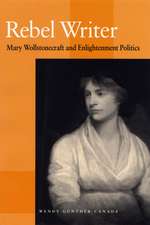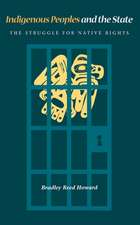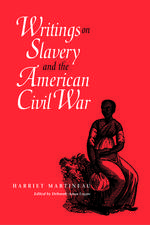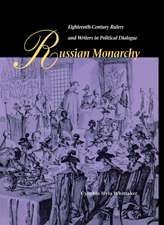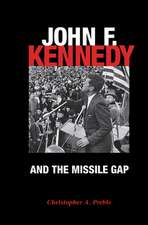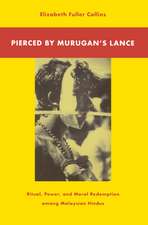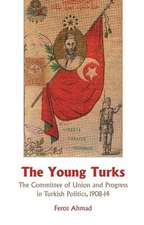Resisting the Third Reich: The Catholic Clergy in Hitler's Berlin
Autor Kevin P. Spiceren Limba Engleză Hardback – 19 iul 2004
When Nazism swept Germany, how did religious leaders respond to attacks not only on their fellow citizens and their government but on their faith as well? Despite charges of complacency, most of the Catholic clergy of the Berlin diocese in fact maintained a quiet resistance to the Nazi regime by offering their parishioners an alternative to National Socialism. In thus broadening the definition of resistance, Kevin Spicer shows why Nazism was so powerfully alluring in the first place. It provided—indeed demanded—a total way of life, encompassing rituals and social belonging, personal identity and charismatic leadership, moral values and a sense of purpose. In a word, it was a religion.
Spicer juxtaposes Catholicism and Nazism to provide a clear, balanced understanding of the challenges the clergy faced simply by celebrating the sacraments and teaching the faithful. By following individual priests in their day-to-day ministries, he documents how effectively they guarded their flock from a predatory ideology. Along the way, he highlights the leadership of Bishop Konrad von Preysing of Berlin, who enabled the diocesan clergy to speak out against Nazi violations of Catholic doctrine and practice, and Monsignor Bernhard Lichtenberg, who was sentenced to prison for publicly praying for Jews and other victims of Nazi oppression.
Yet the clergy's opposition to Nazism did not, for the most part, inspire them to act on behalf of the oppressed. Spicer explores the reasons why one group—the so-called "Brown Priests"—even chose to support National Socialism and what that choice meant for the Church.
Resisting the Third Reich will appeal to historians, religious studies scholars, and readers with an interest in Germany during World War II and in the Catholic tradition.
Spicer juxtaposes Catholicism and Nazism to provide a clear, balanced understanding of the challenges the clergy faced simply by celebrating the sacraments and teaching the faithful. By following individual priests in their day-to-day ministries, he documents how effectively they guarded their flock from a predatory ideology. Along the way, he highlights the leadership of Bishop Konrad von Preysing of Berlin, who enabled the diocesan clergy to speak out against Nazi violations of Catholic doctrine and practice, and Monsignor Bernhard Lichtenberg, who was sentenced to prison for publicly praying for Jews and other victims of Nazi oppression.
Yet the clergy's opposition to Nazism did not, for the most part, inspire them to act on behalf of the oppressed. Spicer explores the reasons why one group—the so-called "Brown Priests"—even chose to support National Socialism and what that choice meant for the Church.
Resisting the Third Reich will appeal to historians, religious studies scholars, and readers with an interest in Germany during World War II and in the Catholic tradition.
Preț: 373.03 lei
Nou
Puncte Express: 560
Preț estimativ în valută:
71.40€ • 77.58$ • 60.02£
71.40€ • 77.58$ • 60.02£
Carte tipărită la comandă
Livrare economică 21 aprilie-05 mai
Preluare comenzi: 021 569.72.76
Specificații
ISBN-13: 9780875803302
ISBN-10: 087580330X
Pagini: 264
Dimensiuni: 152 x 229 x 23 mm
Greutate: 0.5 kg
Ediția:1
Editura: Northern Illinois University Press
Colecția Northern Illinois University Press
ISBN-10: 087580330X
Pagini: 264
Dimensiuni: 152 x 229 x 23 mm
Greutate: 0.5 kg
Ediția:1
Editura: Northern Illinois University Press
Colecția Northern Illinois University Press
Recenzii
"A valuable contribution to scholarship on the role and responsibility of the Catholic Church in Nazi Germany. Spicer provides a fascinating insight into the perceptions, performance, and impact of the clergy in mediating between the demands of their faith and the totalitarian claims of the Nazi state."—Raymond C. Sun, Washington State University
"Compelling reading.... Catholic priests, Spicer demonstrates, played a significant and courageous role in resisting Nazi anti-religious aims."—Michael P. Phayer, Marquette University
"[An]important exploration of Berlin Catholicism."—The American Historical Review
"Compelling reading.... Catholic priests, Spicer demonstrates, played a significant and courageous role in resisting Nazi anti-religious aims."—Michael P. Phayer, Marquette University
"[An]important exploration of Berlin Catholicism."—The American Historical Review
Notă biografică
Kevin P. Spicer, C.S.C., is Associate Professor of History at Stonehill College and is Visiting Professor of History at the University of Notre Dame
Cuprins
Table of Contents
Introduction
1. Initial Encounters
2. Guiding the Flock
3. Negotiating Pastoral Care
4. Serving the Home Front
5. Jews and the Diocese of Berlin
6. For the Glory of the Führer: Brown Priests
7. The Unique Path of Bernhard Lichtenberg
Conclusion
Notes
Works Cited
Index
1. Initial Encounters
2. Guiding the Flock
3. Negotiating Pastoral Care
4. Serving the Home Front
5. Jews and the Diocese of Berlin
6. For the Glory of the Führer: Brown Priests
7. The Unique Path of Bernhard Lichtenberg
Conclusion
Notes
Works Cited
Index
Descriere
When Nazism swept Germany, how did religious leaders respond to attacks not only on their fellow citizens and their government but on their faith as well? Despite charges of complacency, most of the Catholic clergy of the Berlin diocese in fact maintained a quiet resistance to the Nazi regime by offering their parishioners an alternative to National Socialism. In thus broadening the definition of resistance, Kevin Spicer shows why Nazism was so powerfully alluring in the first place. It provided—indeed demanded—a total way of life, encompassing rituals and social belonging, personal identity and charismatic leadership, moral values and a sense of purpose. In a word, it was a religion.
Spicer juxtaposes Catholicism and Nazism to provide a clear, balanced understanding of the challenges the clergy faced simply by celebrating the sacraments and teaching the faithful. By following individual priests in their day-to-day ministries, he documents how effectively they guarded their flock from a predatory ideology. Along the way, he highlights the leadership of Bishop Konrad von Preysing of Berlin, who enabled the diocesan clergy to speak out against Nazi violations of Catholic doctrine and practice, and Monsignor Bernhard Lichtenberg, who was sentenced to prison for publicly praying for Jews and other victims of Nazi oppression.
Yet the clergy's opposition to Nazism did not, for the most part, inspire them to act on behalf of the oppressed. Spicer explores the reasons why one group—the so-called "Brown Priests"—even chose to support National Socialism and what that choice meant for the Church.
Resisting the Third Reich will appeal to historians, religious studies scholars, and readers with an interest in Germany during World War II and in the Catholic tradition.
Spicer juxtaposes Catholicism and Nazism to provide a clear, balanced understanding of the challenges the clergy faced simply by celebrating the sacraments and teaching the faithful. By following individual priests in their day-to-day ministries, he documents how effectively they guarded their flock from a predatory ideology. Along the way, he highlights the leadership of Bishop Konrad von Preysing of Berlin, who enabled the diocesan clergy to speak out against Nazi violations of Catholic doctrine and practice, and Monsignor Bernhard Lichtenberg, who was sentenced to prison for publicly praying for Jews and other victims of Nazi oppression.
Yet the clergy's opposition to Nazism did not, for the most part, inspire them to act on behalf of the oppressed. Spicer explores the reasons why one group—the so-called "Brown Priests"—even chose to support National Socialism and what that choice meant for the Church.
Resisting the Third Reich will appeal to historians, religious studies scholars, and readers with an interest in Germany during World War II and in the Catholic tradition.
